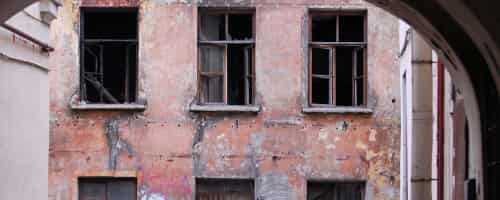Sydney-based lawyer, listed in Australian Financial Review’s Top 100 Future Leaders 2019 & 2021 Awards. Formerly Legal Intern at Lawpath.
Graffiti, vandalism and egging may be frequent in more areas than others. Regardless, it’s important to know what you can do to prevent damage to your property. Further, initiatives from the council can help prevent graffiti and assist with clean-up costs. There are laws that condemn damage to property, so it’s important that you do not disregard offences, thinking they are minor. Rather, they are punishable and you have the power to prevent future attacks.
Legal Protection
Malicious damage means intentional damage or destruction of property. This can include breaking in, but also vandalism and egging. Malicious damage is a criminal offence and can be punishable for up to 5 years in prison. Section 195 of the Crimes Act 1900 (NSW) labels this as “intentionally or recklessly destroying or damaging property belonging to someone else.” Graffiti and vandalism offences dealt with separately, under the Graffiti Control Act 2008 (NSW). Through these provisions, a person guilty of marking premises or property can face a penalty of up to $2,200 and/or 1-year imprisonment.
It’s important to know that you are not alone. The most commonly reported criminal offence in NSW is malicious damage. If you witness any malicious damage or are experiencing a series of attacks, it is important that you notify the police. Consequently, they can identify hotspots and patrol certain areas. If you are in the City of Sydney, they have a Graffiti Management Policy and you can dial the City’s Call Centre on 9265 9333. However, many other councils have their own management policies in response to graffiti.
Preventative Measures
You never know what might happen to your business, so it’s best to know what measures you can take to prevent any damage from happening before it occurs. From crime statistics, malicious damage often occurs between 3 PM and midnight, with the peak being between 6-9 PM. Further, offences often occur between Friday and Sunday.
Easy ways to combat damage:
- Alarm system
- Commercial security shutters
- Anti-graffiti paint
- Sensor-detected lighting
- Surveillance cameras
The court may impose a clean-up order for offenders. Also, they may participate in a graffiti prevention program.
The cost of removing graffiti can be pricey, but in some cases, the Council may remove graffiti on private property without the owner’s consent if the graffiti is visible from a public place. Also, it’s important to remove graffiti quickly. If it is left ignored and untouched, other vandalists may feel encouraged to graffiti on the area as well. If this is an ongoing issue for you, report to the council or police. The police may consider this a targeted attack and can begin investigations.







